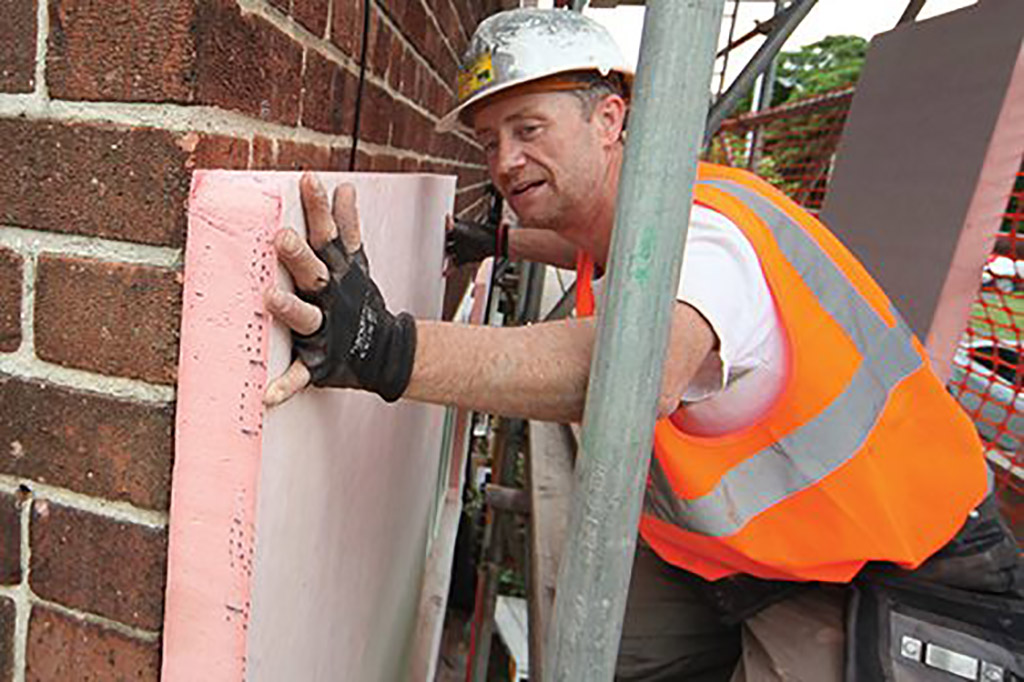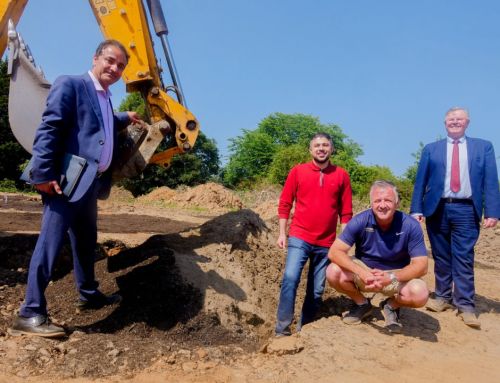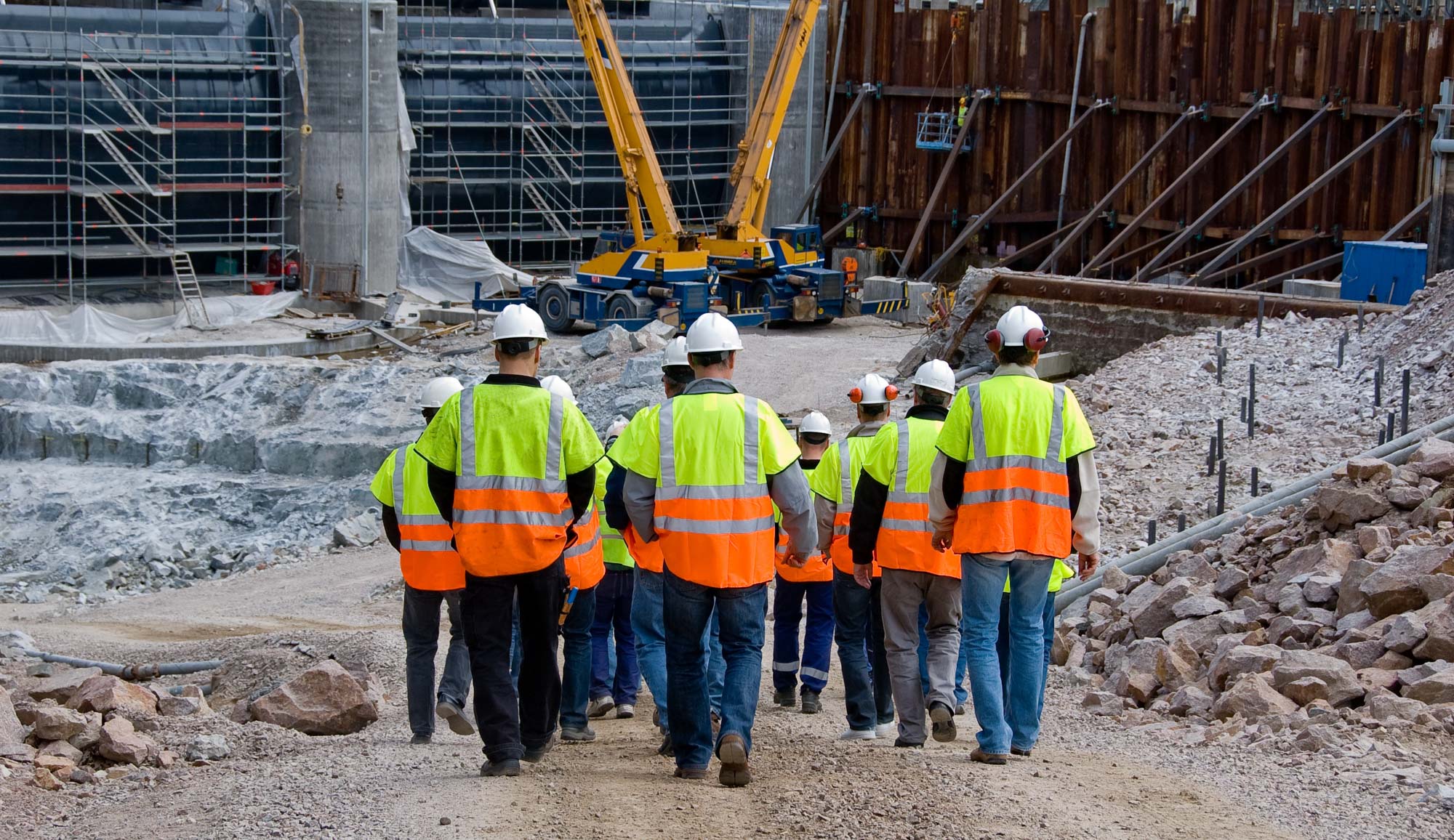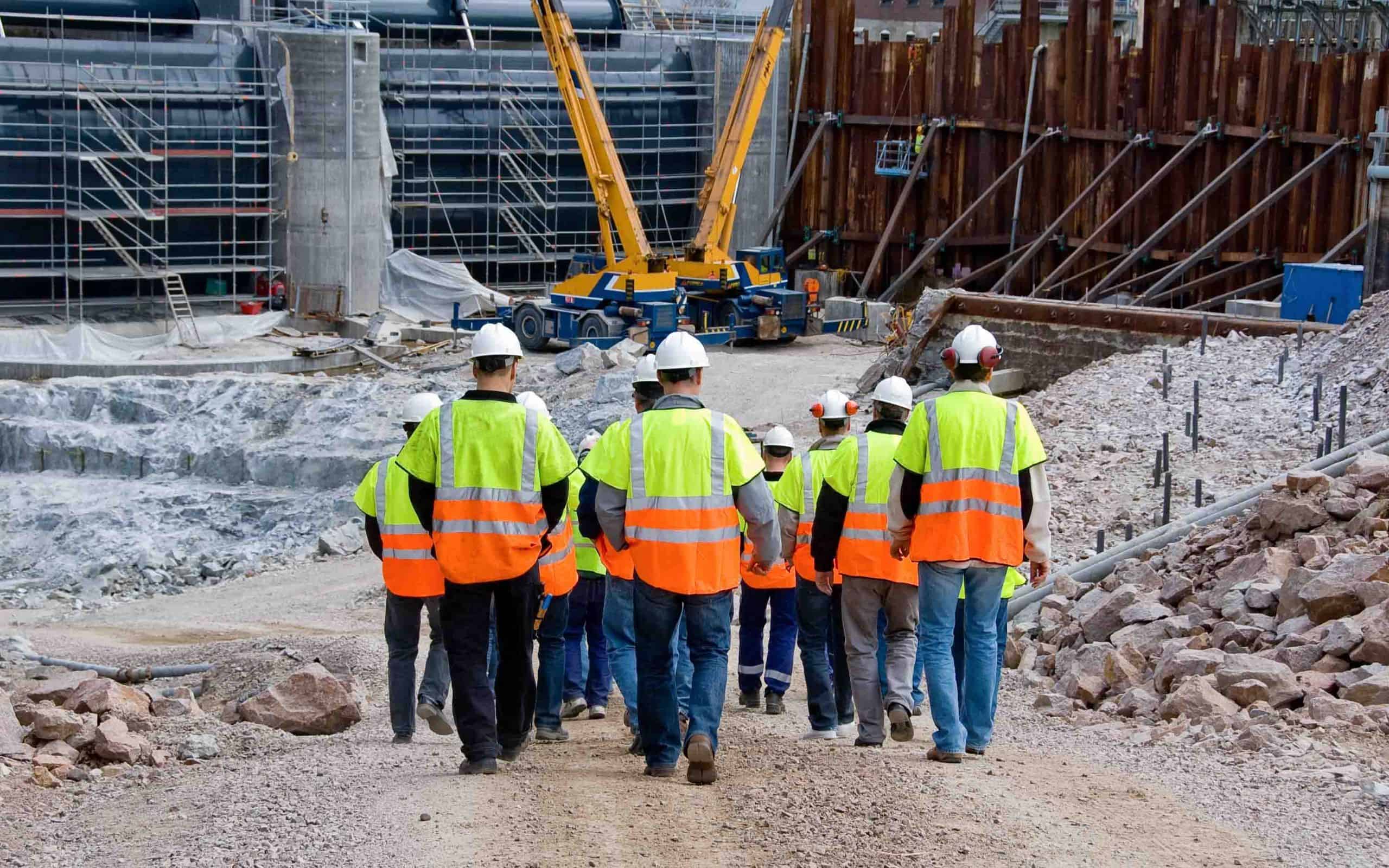S eventy-five per cent of contractors have issues recruiting skilled operatives, according to a new survey from the Civil Engineering Contractors Association (CECA).
Meanwhile, a separate survey for net-zero skills among supply chain firms found 96 per cent of firms affected by skilled labour shortages.
CECA chief executive Alasdair Reisner called for a “sensible approach to managed migration” to address the “alarming” gap between the skills currently available and those that would be demanded for future projects.
In its workload trends survey for the third quarter of 2022, the association found that while contractors experienced an eighth quarter of successive growth in workloads, three-quarters of firms reported issues with the supply of skilled operatives, and 63 per cent with the supply of other operatives.
Reisner said: “There has been a persistent skills gap in our industry for many years, but, in the current economic climate, the discrepancy between the skills level of the workforce and the pipeline of projects we plan to deliver has reached alarming proportions.
“It is the stated ambition of the UK, Scottish and Welsh governments to drive economic growth through infrastructure delivery.
“But this ambition will only be achieved if the workforce is sufficiently skilled to meet this challenge.”
The industry was working with governments at all levels to attract new people into the sector, but workers from overseas would be needed to fill existing shortages, Reisner said.
“In the short term, we continue to call for a sensible approach to managed migration, so that the companies can fill skills gaps needed to deliver the schemes British communities and businesses will rely upon in the coming years,” he said.
A government spokesperson said: “Leaving the EU enabled us to introduce a points-based immigration system and we want to see employers make long-term investments in the UK’s domestic workforce instead of relying on labour from abroad.
“However, we have expanded the skilled worker route to include medium-skilled jobs and it now covers 60 per cent of jobs in the economy, including many in construction.”
The warning came as new research suggested that chronic skills shortages in the supply chain could potentially undermine efforts to decarbonise the sector.
A survey by Balfour Beatty in partnership with the Supply Chain Sustainability School found that 96 per cent of firms reported shortages in skilled labour, specifically in carbon, sustainability, digital and related roles.
Among other findings that sounded a pessimistic note for net-zero targets, 68 per cent of respondents said the sector was not well enough prepared, 53 per cent that the development pipeline for low-carbon materials was insufficient to meet demand and 81 per cent that construction practices were changing too slowly.
Balfour Beatty group director of sustainability Jo Gilroy said that global climate change was a challenge that required the sector as a whole to pull in the same direction.
“With approximately 80 per cent of the sector’s carbon emissions stemming from our supply chain, it is becoming increasingly important to understand the barriers our partners face and where they need more support,” she said.
Supply Chain Sustainability School chair Shaun McCarthy said there was “a long way to go”, and innovation, communication and collaboration were key to meeting the challenge.
“We must urgently address the skills shortage, as well as the speed at which construction practices are changing, to utilise low-carbon technology and methods,” he said.
A report published last month by the Construction Leadership Council found that the UK has less than 2 per cent of the TrustMark-registered retrofit coordinators needed to assess homes and advise people on energy-efficiency opportunities, as well as linking them up with firms to deliver works.
Source: Construction News
S eventy-five per cent of contractors have issues recruiting skilled operatives, according to a new survey from the Civil Engineering Contractors Association (CECA).
Meanwhile, a separate survey for net-zero skills among supply chain firms found 96 per cent of firms affected by skilled labour shortages.
CECA chief executive Alasdair Reisner called for a “sensible approach to managed migration” to address the “alarming” gap between the skills currently available and those that would be demanded for future projects.
In its workload trends survey for the third quarter of 2022, the association found that while contractors experienced an eighth quarter of successive growth in workloads, three-quarters of firms reported issues with the supply of skilled operatives, and 63 per cent with the supply of other operatives.
Reisner said: “There has been a persistent skills gap in our industry for many years, but, in the current economic climate, the discrepancy between the skills level of the workforce and the pipeline of projects we plan to deliver has reached alarming proportions.
“It is the stated ambition of the UK, Scottish and Welsh governments to drive economic growth through infrastructure delivery.
“But this ambition will only be achieved if the workforce is sufficiently skilled to meet this challenge.”
The industry was working with governments at all levels to attract new people into the sector, but workers from overseas would be needed to fill existing shortages, Reisner said.
“In the short term, we continue to call for a sensible approach to managed migration, so that the companies can fill skills gaps needed to deliver the schemes British communities and businesses will rely upon in the coming years,” he said.
A government spokesperson said: “Leaving the EU enabled us to introduce a points-based immigration system and we want to see employers make long-term investments in the UK’s domestic workforce instead of relying on labour from abroad.
“However, we have expanded the skilled worker route to include medium-skilled jobs and it now covers 60 per cent of jobs in the economy, including many in construction.”
The warning came as new research suggested that chronic skills shortages in the supply chain could potentially undermine efforts to decarbonise the sector.
A survey by Balfour Beatty in partnership with the Supply Chain Sustainability School found that 96 per cent of firms reported shortages in skilled labour, specifically in carbon, sustainability, digital and related roles.
Among other findings that sounded a pessimistic note for net-zero targets, 68 per cent of respondents said the sector was not well enough prepared, 53 per cent that the development pipeline for low-carbon materials was insufficient to meet demand and 81 per cent that construction practices were changing too slowly.
Balfour Beatty group director of sustainability Jo Gilroy said that global climate change was a challenge that required the sector as a whole to pull in the same direction.
“With approximately 80 per cent of the sector’s carbon emissions stemming from our supply chain, it is becoming increasingly important to understand the barriers our partners face and where they need more support,” she said.
Supply Chain Sustainability School chair Shaun McCarthy said there was “a long way to go”, and innovation, communication and collaboration were key to meeting the challenge.
“We must urgently address the skills shortage, as well as the speed at which construction practices are changing, to utilise low-carbon technology and methods,” he said.
A report published last month by the Construction Leadership Council found that the UK has less than 2 per cent of the TrustMark-registered retrofit coordinators needed to assess homes and advise people on energy-efficiency opportunities, as well as linking them up with firms to deliver works.
Source: Construction News











